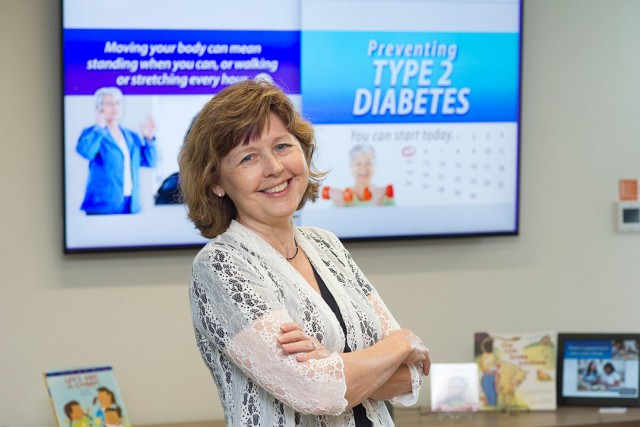News
-
June 25, 2021

Collaboration between RIT and St. Xavier’s College focuses on homelessness
RIT and St. Xavier’s College in Mumbai, India, are partnering to provide training and scholarship in global behavioral health.
-
June 24, 2021

RIT behavioral health training program receives McGowan Foundation grant
A grant from the McGowan Foundation will support a postdoctoral fellowship in RIT’s Priority Behavioral Health and Clinical Psychology Training Program in the College of Health Sciences and Technology.
-
June 22, 2021

RIT engineering researcher and UR physician apply for patent for blood typing device
Steven Day, professor of biomedical engineering at RIT, and Majed Refaai, from the University of Rochester, applied to the U.S. Patent Office this past April for a new blood typing device that can assist trauma patients prior to blood transfusions.
-
May 27, 2021

Smart toilet seat designed to potentially save lives
WHEC-TV talks to David Borkholder, professor in the Kate Gleason College of Engineering and co-founder and head of research and development at Casana.
-
April 28, 2021

Alumni join forces to market smart toilet seat
Alumnus Nick Conn’s vision for a one-of-a-kind smart toilet seat that will improve the health of people around the world has made giant leaps toward becoming a reality with the help of one of RIT’s most generous patrons, Austin McChord.
-
March 12, 2021

RIT student and alumnus follow passion for neurotechnology
School of Individualized Study student Harrison Canning and his business partner, Colin Fausnaught, a 2019 software engineering graduate from RIT, formed the BCI Guys, which stands for brain-computer interface technology. They recently launched an online educational series to lower the barrier of entry and inspire others to join the field.
-
February 25, 2021

How does the Johnson & Johnson vaccine compare to other coronavirus vaccines? 4 questions answered
Essay by Maureen Ferran, associate professor in the Thomas H. Gosnell School of Life Sciences, published by The Conversation.
-
February 24, 2021

Toilet Seat Offers Relief for Heart Patients
ASME.org features David Borkholder, the Bausch and Lomb Professor of Microsystems Engineering, and Nicholas Conn '11, '13 MS (electrical engineering).
-
February 19, 2021

Meet College of Health Sciences and Technology Dean Yong ‘Tai’ Wang
RIT’s College of Health Sciences and Technology began the year under new leadership with Dean Yong “Tai” Wang. Wang joined RIT in January from the University of Texas at Tyler. His research focuses on rehabilitative biomechanics related to wheelchair locomotion and Tai Chi exercise.
-
February 5, 2021

Popular tool for measuring child feeding practices scientifically validated by RIT researcher
The best-practice approach, known as the Satter Division of Responsibility in Feeding, has now been rigorously tested and peer reviewed. The questionnaire will become a standard parent survey for professionals and researchers working in the early childhood development field, predicts lead researcher Barbara Lohse, director of RIT’s Wegmans School of Health and Nutrition.
-
February 3, 2021

Steven Day awarded 406K from NIH
Steven Day, head and professor in Biomedical Engineering, receives an award to develop a silicon membrane device for newborns that will treat life-threatening lung problems. The device aims to reduce problems associated with current devices to minimize bleeding and clotting risks.
-
February 3, 2021

This smart toilet seat might save your life one day
Forbes features Nicholas Conn '11, '13 MS (electrical engineering) and RIT trustee and 2009 alumnus Austin McChord as they team up to create Casana, formerly Heart Health Intelligence, which produces a toilet-seat based cardiovascular monitoring system.